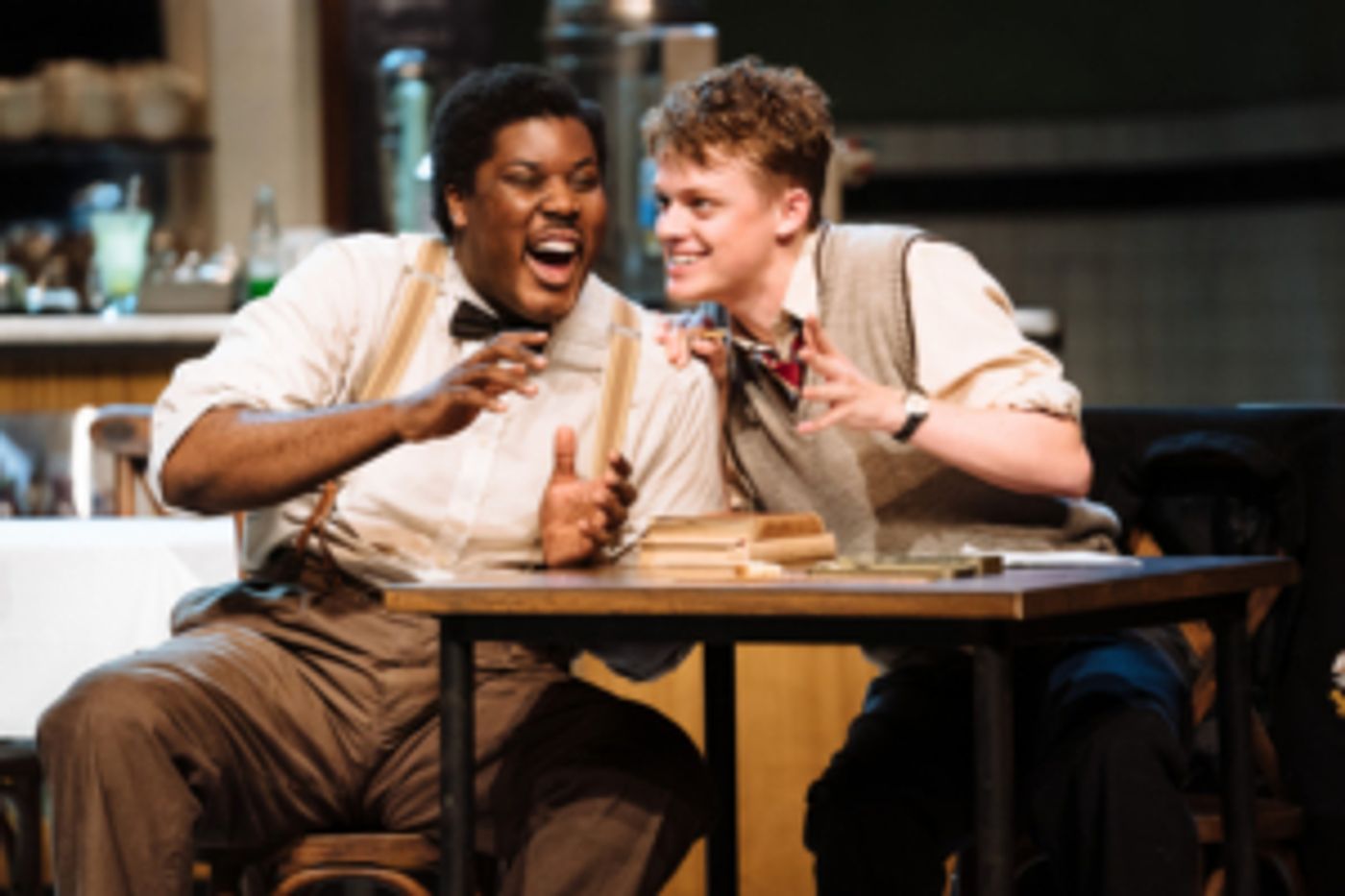Review Roundup: What Did Critics Think of the National's MASTER HAROLD...AND THE BOYS?

The National Theatre presents 'Master Harold'... and the boy, featuring Lucian Msamati (Amadeus, Kiri) as Sam, Hammed Animashaun (Barber Shop Chronicles, A Midsummer Night's Dream) as Willie and Anson Boon (Blackbird, The Alienist) as Hally, and directed by Roy Alexander Weise (Nine Night, The Mountaintop).
1950. Apartheid South Africa.
St George's Park Tea Room, Port Elizabeth, 1950. On a long rainy afternoon, employees Sam and Willie practise their steps for the finals of the ballroom dancing championship. Hally arrives from school to hide out in his parents' tea room. These two men have been unlikely best friends to Hally his whole life.
But it is apartheid era South Africa: he's Master Harold, and they are the boys.
Tony Award-winning playwright Athol Fugard's semi-autobiographical and blistering masterwork explores the nature of friendship and the ways people are capable of hurting even those they love.
Let's see what the critics had to say...
Marianka Swain, BroadwayWorld: One could definitely argue that the play is overwritten in parts, Fugard determined to teach a lesson as much as convey the drama. With a cast as articulate as this, it feels unnecessary. However, Roy Alexander Weise makes some excellent choices in his powerful revival, not least emphasising the idea of ballroom dancing as a vision for a world free from conflict, and where men like Sam and Willie can have grace, beauty and aspiration - dancing centre stage in all their finery instead of clearing up their master's messes in dark corners.
Nick Curtis, Evening Standard: Lucian Msamati and Hammed Animashaun give dignified, layered performances as black servants Sam and Willie. Their fragile camaraderie with his patronising young son Hally/Harold (Anson Boon, impressive but sometimes ungoverned) depends on his mood.
Michael Billington, The Guardian: What moves one is the vision of ballroom dancing as a metaphor for worldly harmony, and what shocks is the episode in which Hally treats Sam as a target for his inbred racism. Both scenes emerge strongly in Roy Alexander Weise's very well acted production. Anson Boon does nothing to soften Hally's condescension while suggesting he is a gawky loner at heart. Lucian Msamati lends Sam a wonderful dignity and subtly indicates that his anger at Hally's final insult is tinged with deep sorrow. Hammed Animashaunimpressively shows the exploited Willie seeking on the dancefloor a grace he is denied in daily life.
Tim Bano, The Stage: The play serves as an act of atonement for something unforgiveable the playwright did to Sam. Fugard builds the dynamics slowly. The seeds are sown with care. To start with, this doesn't make for a thrilling, dramatic experience. But director Roy Alexander Weise - and Fugard - are saving their skill for the climax. Fugard's mastery of structure becomes very clear, as does the reason behind Weise's decision to sit back and let the words do the work.
Photo credit: Helen Murray
- To read more reviews, click here!
- Discuss the show on the BroadwayWorld Forum
Reader Reviews

Videos

